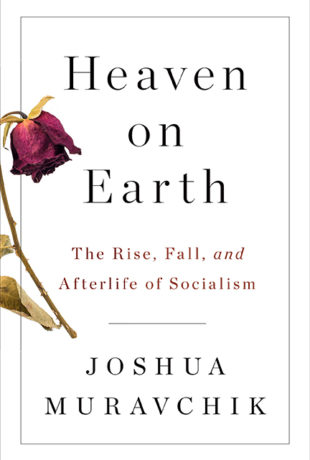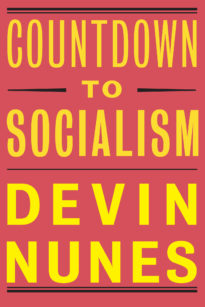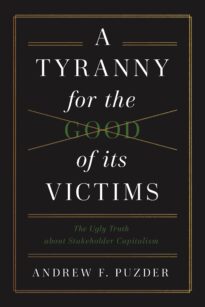EASTER SUNDAY, 1911, was a glorious spring day in the region of Picardy, with a “superb azure sky” beckoning locals to their gardens and fishing holes, so the newspaper reported. But four to five thousand residents of Saint Quentin had more serious things in mind. Led by marching bands and illustrious delegates from all across France, they paraded past city hall and gathered around a flag-draped red platform erected in front of the central labor headquarters. There, they commemorated an anniversary—not of Christ’s resurrection, but of the birth in that town, 151 years earlier, of “the first fighter and martyr for the socialist idea,” according to the keynote speaker, Jean Jaurès, the leader of the main party of French socialists.
Although images of socialism had been sketched by philosophers as far back as Plato, these had never been more than intellectual exercises. Like Oz or Lilliput, Plato’s Republic and Thomas More’s Utopia (which means “Nowhere”) were conjured up in order to make a point about life and existing society. The French Revolution, however, made things that had once been taken as fanciful suddenly seem possible. “Nowhere…first became somewhere in the Palais-Royale,” remarks James Billington.
The most consequential of these new possibilities was socialism, although this was not in view when the Revolution began. The stormers of the Bastille had not aimed at a socialist objective, nor did the actors in any of the other increasingly radical moments—journées, they were called—of the next five years. On the contrary, from Mirabeau to Robespierre, the revolutionists, it has often been noted, were mostly of the bourgeoisie, and their key pronunciamentos affirmed the right of property.
The 1789 Declaration of the Rights of Man and Citizen tracked the U.S. Declaration of Independence in proclaiming that the reason for government was to secure men’s rights. And its designation of those rights—“liberty, property, security”—resembled the American triad of “life, liberty, and the pursuit of happiness.” (The French included a right of “resistance to oppression,” but this was little more than a rhetorical flourish.) However, as the Revolution unfolded and new constitutions were written, the French added a fourth substantive right: equality. To be sure, the Americans had proclaimed that men were “created equal,” but this was not a statement of policy; it was a postulate about the nature of man and his relation to God. The French innovation was to include “equality” among the essential purposes of government.
The impetus behind this was not hard to understand. Whereas the core issue for the Americans in 1776 was political legitimacy, for the French in 1789 it was social status. The rebellion in France was aimed against an onerous and pervasive structure of invidious distinction. Its first act was to demand that representatives meet in one body as a “national assembly” rather than as separate “estates.” The promise of equality, thus, expressed the very soul of the Revolution, but there was no explanation of how this might be achieved or even what, exactly, it meant.
As the break with the old regime accelerated into an avalanche, the right of property remained sacrosanct. The constitution of 1793, the formal expression of the most extreme phase of the Revolution, reaffirmed it in the strongest terms: “No one may be deprived of the least portion of his property without his consent, unless a legally established public necessity requires it, and upon condition of a just and previous indemnity.”
It was only in the dying days of the Revolution that someone came forward to argue that there was a contradiction within the revolutionary agenda—that fulfilling the promise of equality would require not merely the abolition of feudal titles and privileges, but the institution of a new way of economic life, in which individual ownership would be abolished and each citizen would be furnished with an identical portion of nature’s bounty.
The man who put this forth was named François-Noël Babeuf, and he called himself Gracchus. He was the native son whom the diverging factions of French socialists united to honor that day in Saint Quentin, as he had been lauded in the writings of Marx and Engels, and as he would be extolled again at the founding of the “Comintern.”
At the trial following the abortive insurrection he was to lead in 1796, Babeuf claimed that his socialist beliefs were not original. In his defense he quoted at length from Rousseau and Mably, and from writings that were ascribed to Diderot (although subsequent scholarship showed them to have been written by the less-known Abbé Morelly). His ideas were borrowed from them, said Babeuf: “In condemning me, gentlemen of the jury…you place these great thinkers…in the dock,” for “the man who wills an end also wills the means to gain that end.” But this is no more persuasive historically than it was found to be juridically. However closely Babeuf’s goals may have resembled those of the philosophes or earlier utopians, none of them had ever organized to seize power as Babeuf had done through an underground organization calling itself the “Conspiracy of Equals.” Babeuf may have taken his philosophy from others, but before he came along, socialism had been only a speculative fancy. He transformed it into a fighting creed.











